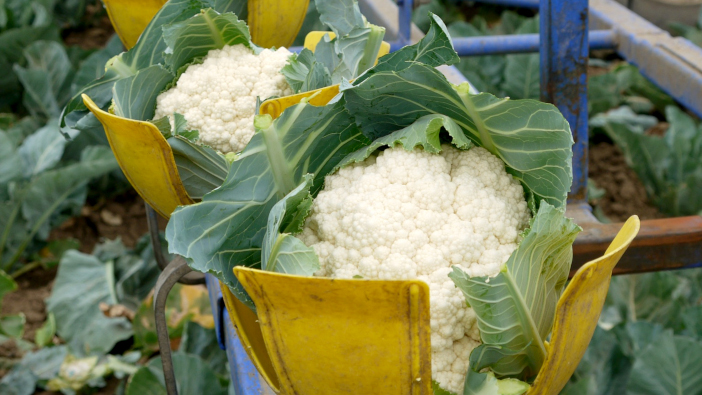At the Brassica and Leafy Salad Conference on the 19th of January, Seminis will highlight new broccoli varieties to improve harvest efficiency and cauliflowers with greater summer field-holding characteristics on its stand.
Across the walkway, Bayer Crop Science will share data on the latest SDHI foliar fungicide, which is expected to receive regulatory authorisation in 2023.
“High Rise is the range of broccoli varieties that promise to improve harvest efficiency. These are taller and more erect than other types with a cleaner stem, making them faster to harvest by hand and very well-suited to machine harvesting. As such they are attracting strong interest from growers as they try to reduce the need for seasonal labour,” said Sharon MacGregor, Seminis open field UK and Nordics sales manager.
The Curdivex range of cauliflower varieties is another innovation, reportedly attracting strong interest among growers.
“Curdivex varieties feature a white curd with less curd cover, retain their white colour for longer, giving better quality,” said Mrs MacGregor. “Future developments in this range will include varieties better suited to processors. These include higher yield potential and types with smaller florets for prepared and frozen foods.”
New for 2022 will be spinach trials involving a new seed treatment and growers are invited to visit the stand for more details.
Chemical controls
Disease and pest control is a challenge for all growers and Bayer Crop Science will be offering advice on Rudis (prothioconazole) and Nativo (trifloxystrobin + tebuconazole) in controlling foliar diseases in brassicas, leeks, and carrots.
“We have a pipeline SDHI fungicide product that is showing great promise and for which we will share performance information with growers ahead of its expected authorisation in 2023,” explained Claire Matthewman, Bayer campaign manager for horticulture.
“With the loss of active substances, the insect control afforded by the bioinsecticide FLiPPER (fatty acids C7-C20) has attracted interest among growers, not least for its broad pest spectrum of activity, zero harvest interval and its’ exemption from maximum residue limit testing.
“Vegetable crop trials from 2021 and earlier seasons continue to inform the application advice we provide to growers and in this respect, we have valuable new data to share ahead of the 2022 season,” concluded Mrs Matthewman.


